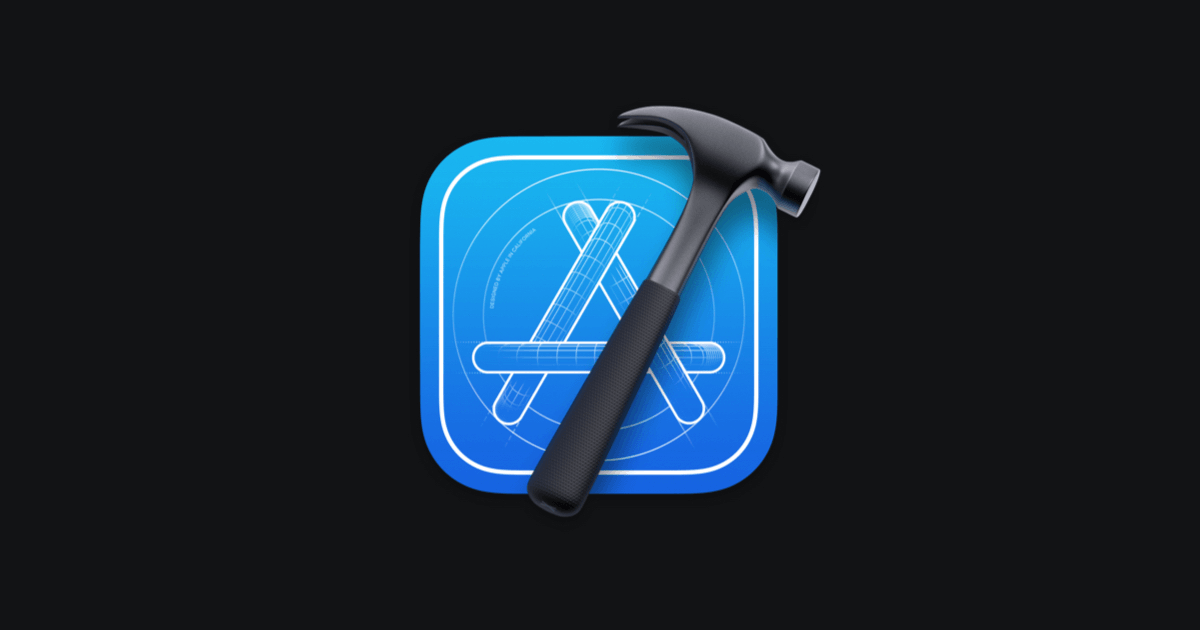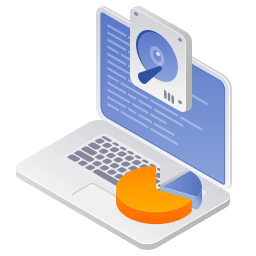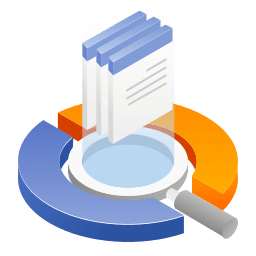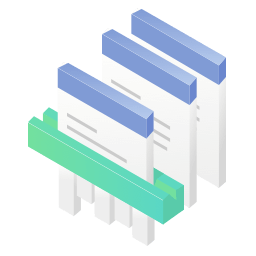PAGE CONTENT:
Apple's ecosystem is renowned for its seamless integration of hardware and software, and at the core of Apple's software development is Xcode, an essential tool for developers building apps for macOS, iOS, watchOS, tvOS, and other Apple platforms. Xcode is more than just a programming environment; it's a robust suite of tools that helps developers design, develop, test, and deploy applications.
This article will provide an in-depth overview of Xcode, its features, and why it's an essential tool for developers working within Apple's ecosystem. By the end, you'll also have a clear understanding of whether you, as a user or aspiring developer, need to install Xcode on your Mac.

What is Xcode?
Xcode is Apple's Integrated Development Environment (IDE) designed specifically for macOS, which provides all the necessary tools to develop software for Apple platforms. Launched in 2003, Xcode has evolved significantly and now includes a broad range of features that streamline app development. It supports programming languages like Swift and Objective-C, and it offers a comprehensive set of tools for UI design, testing, performance optimization, debugging, and even distribution to the App Store.
Xcode is essential for any developer working on applications for Apple products, allowing them to create native apps that can run on Apple devices seamlessly. It also includes a simulator to test apps on different device types and operating systems without needing physical hardware.
Core Features of Xcode
1. Integrated Development Environment (IDE)
Xcode provides an all-in-one environment for writing, compiling, and debugging code. This means that developers don't need to switch between different applications to write their code, manage files, and debug errors. Everything is contained within a single, unified workspace.
The Xcode editor supports both Swift and Objective-C, the two primary languages for Apple development. The editor is smart, offering auto-completion, syntax highlighting, and code folding. The built-in error-checking and debugging tools make development faster and more efficient.
2. Swift and SwiftUI Support
One of Xcode's most standout features is its tight integration with Swift, Apple's programming language that is designed to be simple and powerful. Since Swift's introduction in 2014, Xcode has optimized the development experience for Swift developers, offering real-time feedback, code suggestions, and an easy way to integrate with SwiftUI, Apple's framework for building UIs across all its platforms.
SwiftUI is an even more significant advancement that lets developers design user interfaces with simple declarative code, significantly reducing the amount of code needed to build a responsive and dynamic UI. Xcode's visual preview system allows developers to see their SwiftUI designs in real-time.
3. Interface Builder
Xcode's Interface Builder provides a drag-and-drop interface for creating and arranging the user interface of your app. It is particularly useful for developers who prefer visual design over writing code to create UI elements. Interface Builder allows developers to layout app interfaces visually and link them to code, which simplifies the design process significantly.
With Interface Builder, developers can design complex layouts, configure UI components, and set up constraints to ensure the interface looks good on different devices and screen sizes.
4. Simulator
The Simulator in Xcode allows developers to test their apps on a variety of devices without needing the physical hardware. Whether you’re developing for iPhone, iPad, Apple Watch, or even Apple TV, the Simulator provides a way to quickly see how your app will perform on different screen sizes, operating systems, and resolutions.
The Simulator is not just for testing; it also allows developers to run apps and interact with them as if they were using a real device. This tool significantly cuts down on the cost and time of acquiring and maintaining multiple Apple devices for testing.
5. Testing and Debugging Tools
Xcode offers a wide range of tools for testing and debugging applications. The built-in Test Navigator makes it easy to create, manage, and run unit tests and UI tests for your app. Xcode supports Automated Testing, which allows developers to verify that their code performs as expected and doesn’t break with each new addition.
In addition, Xcode offers a debugger to help identify and fix bugs in your code. The Instruments tool, also part of Xcode, helps developers identify performance issues and optimize their applications to run more efficiently.
6. App Store Integration
Once your app is developed, tested, and ready for release, Xcode integrates seamlessly with the App Store Connect to manage your app's submission to the App Store. This includes code signing, app packaging, and deployment features, making it easy to distribute apps to end users through Apple’s app ecosystem.
7. Command Line Tools
Xcode includes command line tools that are particularly useful for automating development workflows. Developers can compile their code, manage projects, and run tests directly from the terminal without opening the Xcode application itself. This feature is essential for developers working on large projects or those who want to streamline their development process with scripts and automated tasks.
Who Uses Xcode?
Xcode is used primarily by software developers who create applications for macOS, iOS, watchOS, and tvOS. Whether you're building a mobile app for iPhone, a desktop application for macOS, or an app for Apple Watch, Xcode is essential for bringing your project to life. The IDE caters to a wide range of developers, from hobbyists and students to professionals working on enterprise-level software.
- App Developers: Both indie developers and large development teams use Xcode to create apps for Apple's App Store. Its integration with Swift, Interface Builder, and testing tools makes it ideal for developing consumer apps.
- Game Developers: Xcode is also used by game developers to create games for iPhone, iPad, and Apple TV. Game engines like Unity and Unreal can also integrate with Xcode for compiling and debugging games on Apple devices.
- Students and Learners: Xcode is frequently used in educational settings to teach programming, particularly with Swift Playgrounds, which provides an interactive way to learn Swift inside Xcode.
- Open-Source Developers: Many open-source projects for macOS and iOS are built with Xcode. Developers contributing to or maintaining open-source projects can use Xcode's extensive feature set to create, test, and improve their applications.
Is Xcode Necessary for Non-Developers?
For the average Mac user who doesn't engage in app development, Xcode is not essential. Xcode is primarily aimed at developers and those interested in creating software for Apple devices. However, there are a few scenarios where non-developers might consider installing Xcode or its accompanying command line tools:
- Command Line Tools: If you occasionally need to run scripts or work with packages that require Apple's command-line tools, you don't necessarily need the full Xcode suite. You can install just the Xcode command-line tools, which include compilers like clang and essential Unix-based commands like git.
- Tinkering with Open-Source Projects: Some users who like to experiment with open-source macOS software may need Xcode to compile the code. However, if you're not writing code or contributing to software development, Xcode won't offer much value to you.
- Development Curiosity: If you're curious about app development, Xcode is a great tool to start exploring. The IDE, combined with online resources and Apple's documentation, provides a good introduction to app development even for beginners.
Xcode System Requirements and Installation:
As a fully-featured IDE, Xcode is a fairly large application, typically requiring more than 10GB of storage space. It also demands a reasonably modern Mac to run smoothly. Xcode is regularly updated alongside new macOS versions, so having the latest version of macOS is usually a good idea if you plan to use Xcode for development.
To install Xcode, you can simply download it from the Mac App Store. However, due to its size, the download and installation process can take some time, depending on your internet speed.
💡 Note: If you want to uninstall Xcode from your Mac, just drag it into trash or use a third-party free uninstaller to completely uninstall it & delete all associated files.
Xcode Alternatives
While Xcode is the go-to IDE for Apple development, there are alternatives, depending on your needs.
- AppCode: JetBrains offers AppCode, an IDE designed for iOS/macOS development that integrates with Xcode. Some developers prefer AppCode's refactoring tools and smarter code completion over Xcode.
- Visual Studio Code: Microsoft's Visual Studio Code is another popular alternative for developers working across multiple platforms. However, Visual Studio Code still relies on Xcode for compiling and testing on Apple devices.
- Sublime Text: If you prefer a lightweight text editor and do not need a full-fledged IDE, Sublime Text is an excellent code editor that can be customized with various plugins to work with Swift and Objective-C. Again, it requires Xcode for building and testing.
Common Challenges and Solutions
Xcode is a powerful tool, but it can be overwhelming for beginners or even seasoned developers. Some common challenges include long installation times, a steep learning curve, and managing large projects. Here are a few tips to address these issues:
- Documentation and Tutorials: Apple provides excellent documentation, and many third-party websites offer comprehensive tutorials and video guides. Take advantage of these resources to ease the learning curve.
- Frequent Updates: Xcode receives frequent updates, which sometimes require a full re-download of the software. Keeping your macOS up to date and managing your storage carefully can help mitigate these issues.
- Performance: Xcode is resource-intensive, so ensure that your Mac has enough RAM and storage. Consider upgrading your Mac or using external drives to store large projects if necessary.
Conclusion: Do You Need Xcode?
If you're an aspiring or professional developer aiming to create applications for Apple's platforms, then Xcode is not only necessary but indispensable. It offers a complete set of tools for the entire app development lifecycle, from writing code to testing and deployment. With its comprehensive support for Swift, SwiftUI, and robust debugging tools, Xcode is an essential component of Apple's developer ecosystem.
For non-developers, Xcode might not be necessary unless you're interested in experimenting with app development or working with command-line tools. Ultimately, Xcode is designed to meet the needs of software developers, and if that's not your role, you can likely skip installing it on your Mac.
In summary, whether you're a seasoned developer building the next big app or a curious learner, Xcode provides everything you need to create applications for Apple's ecosystem. It's a powerful tool that bridges the gap between idea and execution, allowing developers to bring innovative solutions to life across all of Apple's platforms.
Related Articles
- Jul 25, 2024Mac Launchpad: App Manager for Mac
- Dec 12, 2024How to Use Dock on Mac and Fix Common Dock Issues?
- Jul 24, 2024Apple Menu on Mac
- Apr 15, 2025What is Data Recovery, How to Recover Lost Data?
- Oct 28, 2025Should You Install Windows 11 25H2?
- Nov 18, 2025What Can Mac Disk Utility Do?

Christina
Christina is the senior editor of Donemax software who has worked in the company for 4+ years. She mainly writes the guides and solutions about data erasure, data transferring, data recovery and disk cloning to help users get the most out of their Windows and Mac. She likes to travel, enjoy country music and play games in her spare time.

Gerhard Chou
In order to effectively solve the problems for our customers, every article and troubleshooting solution published on our website has been strictly tested and practiced. Our editors love researching and using computers and testing software, and are willing to help computer users with their problems
Hot Donemax Products

Clone hard drive with advanced clone technology or create bootable clone for Windows/Mac OS.

Completely and easily recover deleted, formatted, hidden or lost files from hard drive and external storage device.

Certified data erasure software - permanently erase data before selling or donating your disk or any digital device.